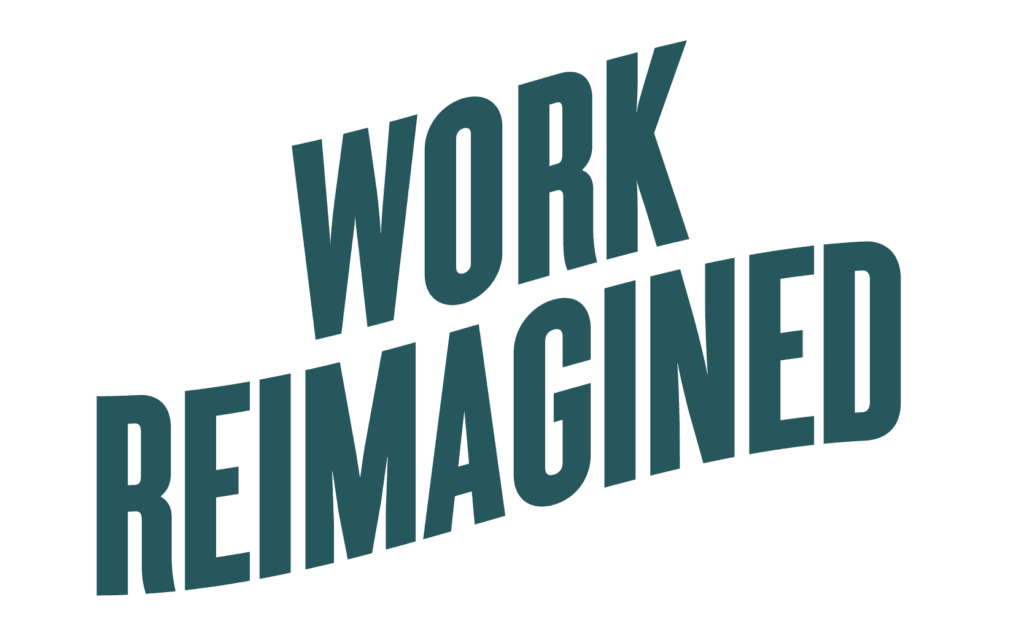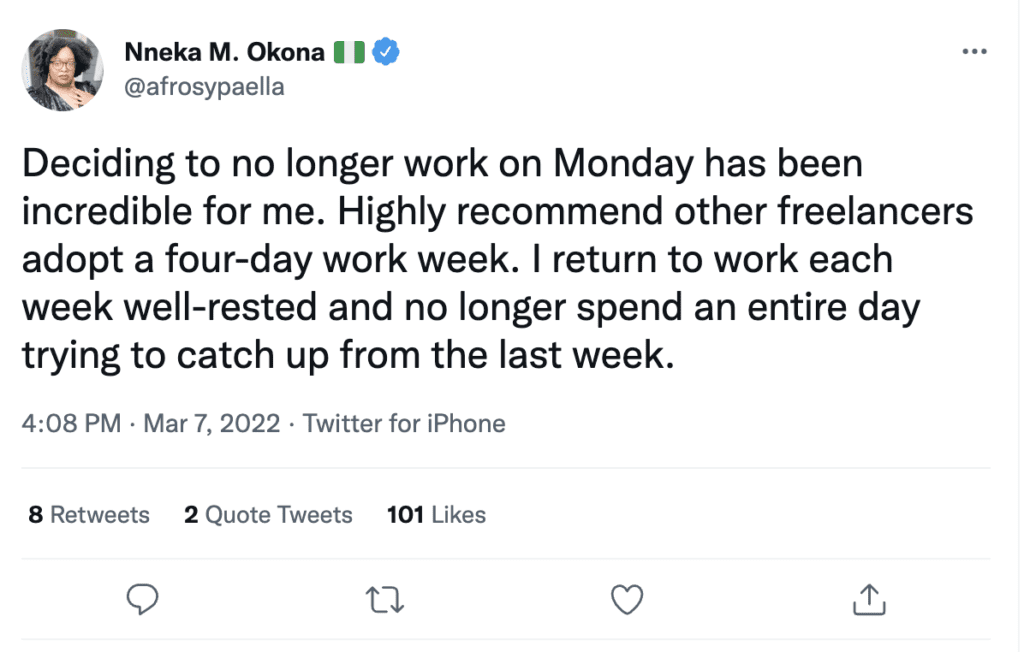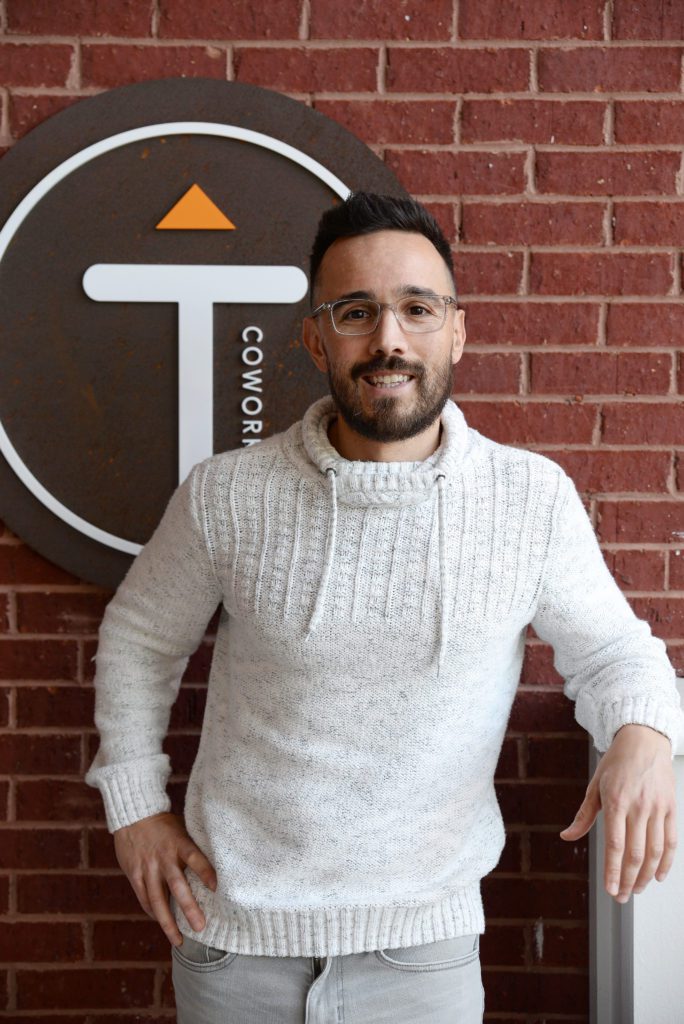Welcome to the inaugural edition of THRIVE | Times, a monthly newsletter for business leaders and executives that focuses on the tectonic shifts in how and where Americans work. We are THRIVE | Coworking, a fast-growing network of purpose-driven, hybrid workspaces, and we have our finger on the pulse of the changes that are sweeping the business landscape, and we hope to provide some clarity, insight and inspiration. We are here to help you THRIVE.
In This Issue
By the Numbers
The Lead: Flex Work is No Stretch — It’s Here
5 Questions: THRIVE CEO Ramon Gonzalez
Spotlight: Charleston, SC
In the News
The Pearl … a bit of wisdom
By the Numbers
57
The percent of suburban office space nationwide is estimated by commercial real estate firm Jones Lang LaSalle to be so old it’s functionally obsolete.

The Lead
Flex Work is No Stretch — It’s Here
Hybrid work, from 4-day workweeks to work-from-anywhere, is taking hold. And employees aren’t the only ones embracing it.
The 40-hour workweek used to feel like just another fact of life, as certain as death, taxes and the Seattle Mariners never making it to the playoffs. But since the COVID-19 pandemic disrupted just about every aspect of our lives, more companies and workers are taking the opportunity to rethink the way we work — not only where and when to work, but how many hours we should be working in the first place.
Millions of workers resigned from their jobs during the pandemic, many of them citing burnout as the reason. A labor shortage gives some workers more leverage than they’ve had in decades, and companies are looking for innovative ways to attract and keep talent. Top of the list of worker demands? Flexibility.
“Workers have emerged from the pandemic with different expectations around what constitutes a healthy life/work balance,” says Joe O’Connor, CEO of 4 Day Week Global, a nonprofit that helps companies try out a shortened workweek. “Sometimes it takes a big disruptor to dislodge deeply embedded societal and cultural norms. That’s what we are seeing with the traditional five-day working week following the COVID-induced flexible working revolution.”
Globally, almost two thirds of knowledge workers — which includes everyone from programmers and engineers to architects and lawyers — said flexibility was even more important to them than salary, according to a study by the Harvard Business Review. In response, many workplaces now offer hybrid schedules, coming into the office a few days a week and working remotely the rest of the time.
At Google, for example, most employees spend about three days in the office and two days “wherever they work best,” according to a blog post from CEO Sundar Pichai. The company also offers “work-from-anywhere weeks,” up to four per year, to facilitate summer and holiday travel.
When Salesforce surveyed its employees, it found that 60 percent said hybrid work would improve their mental and physical health, and about 16 percent say they’re more productive when they work from home.
Some companies even let certain employees ditch the office altogether. Airbnb, for example, recently announced it would let its employees work permanently from wherever they want, whether it be a home office, their neighborhood THRIVE, or a hammock in Bali.
Even Richard Nixon Thought We’d Have a Four-day Week
And it’s not just remote work that’s on the rise. In business and even in government, there’s a growing movement toward reducing working hours altogether — without reducing pay. Many think it’s an idea whose time has come: Back in the 1930s, economist John Maynard Keynes predicted that technology would make future generations so productive that we’d only have to work about 15 hours a week. Even Richard Nixon thought we’d have a four-day week by now.
O’Connor’s team found that when you give workers a chance to take an extra day off each week provided they still get all their work done, the business becomes more efficient. “Studies show that the average office worker loses more than two hours per day to overly long meetings, distractions and inefficient processes,” says O’Connor. “So the four-day week is already here; it’s just buried under a rubble of time-wasting practices.”
Microsoft saw a 40 percent boost in productivity when it experimented with a four-day week, and crowdfunding platform Kickstarter is piloting the idea too, among many other firms. The country of Iceland put the idea to the test in 2015; for four years, 1 percent of the country’s workers had their workweek reduced from 40 hours to 35 or 36, keeping the same pay. The companies found no decrease in productivity, and workers felt more energized and less stressed. Now the vast majority of Icelandic workers are either already working reduced hours or have the right to ask for them.
Some freelancers are getting in on the act, too. Even when you don’t have a boss to report to, getting enough down time and drawing good boundaries between work and not-work is essential.

While O’Connor’s group, Four-Day Week, aims to convince companies to voluntarily reduce hours to improve both employee morale and the bottom line, there are also moves to shorten the workweek by law. The California legislature recently considered a bill that would change the legal definition of a full work week from 40 hours to 32, and similar legislation has been proposed on the federal level.
Still, Not Everyone Agrees (Looking at You, Elon)
Not all business leaders are convinced, though. Google’s former HR chief has predicted the trend toward remote and hybrid work won’t last, saying eventually bosses would insist on getting workers back at their desks. And Elon Musk threatened to fire Tesla and Space X workers who don’t report to the office a minimum of 40 hours per week.
But if you ask O’Connor, flexibility is here to stay. “The biggest obstacle to getting companies on board with the four-day work week is their belief that things are fine the way they are,” he says. “Those who think we will turn the clock back to the way things were two years ago are engaged in ‘pie in the sky’ thinking. Entrepreneurs need to consider which is the bigger risk — their company implementing a four-day week or their biggest competitor doing it first?”

5 Questions:
THRIVE CEO Ramon Gonzalez

Coming from humble roots in the Bronx, New York, THRIVE | Coworking Co-founder and CEO Ramon Gonzalez has an inspiring story — and an inspiring message. We put five questions to him.
1) How did you get your start?
I come from the Bronx. I didn’t have a lot of stuff and grew up hungry to prove myself. And the easiest way to do that is make a lot of money. My parents, I don’t even know if they made it to high school; I helped my dad learn to read. So after I came out of college, business school in Boston, my parents got a little cash out of a re-fi and let me borrow almost all of it. Then I drove a U-Haul down to Pensacola, Florida, moved down and started investing.
2) How did you come to the idea of coworking?
A buddy of mine told me about coworking in 2014 and I was like, holy crap, this makes sense. I see what’s happening here — people are going to be able to work where they want. I sold my last company [a property management business] and started a prototype space in downtown Alpharetta, Georgia. The idea was to have really engaging, irresistible environments, with super-cool community managers, unique, homey-but-eclectic design, and do it in these walkable, revitalizing downtown markets.
3) Why is location important for THRIVE?
Because most office space is delivered in really boring places, but when you have the choice to work anywhere, you’re going to work in a place where you love to be. It’s as simple as that. And since the founding of the company in 2015, we’ve really refined what it is that makes us different and why we feel like we matter and the work we do matters.
4) What inspired the culture you have created at THRIVE?
I learned the value of culture [at my last company]. And I realized, damn, life isn’t just about chasing prestige and money. My next company is going to be one that’s just a powerful force for good, something that’s inspiring, that’s purpose driven, where we can create a culture and a community within it that just shines. And I was inspired to help other people see that truth. So I came up with this mission statement: To leverage the power of enterprise as a force for good and to inspire others to do the same.
5) How does THRIVE address workforce solutions for companies?
We really kick ass at the purpose thing. We really are great at addressing issues of loneliness and community — we call that engagement. Who needs that right now? Companies do. They’re desperate for that. Most don’t have enough time to really nail that. Employees are leaving in droves because of lack of engagement, because they feel like the work they’re doing is disconnected from purpose. And so they’re just chasing the highest dollar they can, or they’re looking to find that purpose. They’re just not happy so they’re going somewhere else.
Spotlight:
Charleston, SC
THRIVE | Coworking is coming to Charleston, SC, and we can’t wait to clatter down its cobblestone streets in a horse-drawn carriage, indulge in some she crab soup at Hank’s, and catch a show at the Dock Street Theater. Check out our THRIVE | Charleston video to get the details on our expansion into the Palmetto State.
In the News
THRIVE and 33 Degrees Raise Funds to Expand to 500 Locations
THRIVE | Coworking to Open in Suwanee Town Center Area
Gen Z Knows What It Wants From Employers. And Employers Want Them.
The Pearl … a bit of wisdom
“Those who think we will turn the clock back to the way things were two years ago are engaged in ‘pie in the sky’ thinking. Entrepreneurs need to consider which is the bigger risk — their company implementing a four-day week or their biggest competitor doing it first?”
— Joe O’Connor, CEO, 4 Day Week Global

A new standard for hybrid, flexible work resources
Providing a purpose-driven, socially engaged environment for freelancers and entrepreneurs, as well as remote-work hubs for employees of both large and small enterprises.
THRIVE offers convenient 24/7/365 office space, combining style and thoughtful amenities with philanthropy and community involvement.




